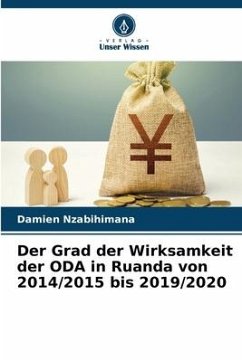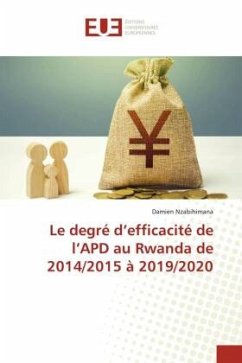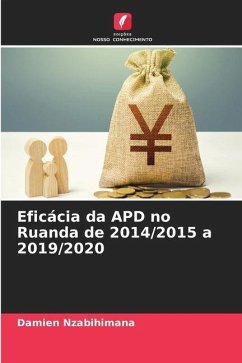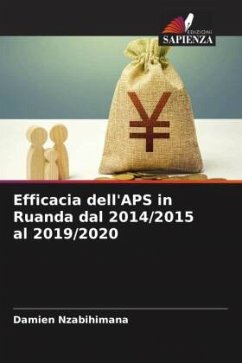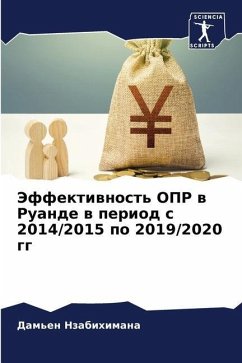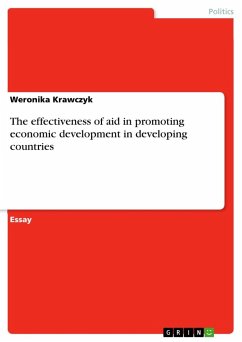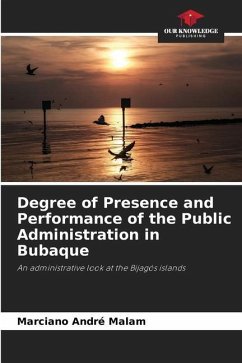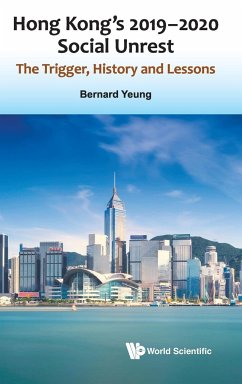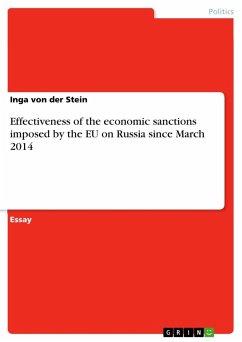
The degree of effectiveness of ODA to Rwanda from 2014/2015 to 2019/2020
Versandkostenfrei!
Versandfertig in 6-10 Tagen
29,99 €
inkl. MwSt.

PAYBACK Punkte
15 °P sammeln!
The study focuses on the effectiveness of ODA in Rwanda from 2014/2015 to 2019/2019. It had two objectives: (i) To show the degree of effectiveness of ODA in Rwanda and (ii) To try to suggest measures that could improve the effectiveness of ODA in Rwanda. The methodology used includes documentary and interview techniques, analytical, synthetic and comparative methods. Primary and secondary data from surveyed institutions such as MINECOFIN, MINAFFET, BNR, PRIMATURE, MINICOM, World Bank, IMF, OECD, DAC and some diplomatic missions accredited to Rwanda were used. The study referred mainly to the ...
The study focuses on the effectiveness of ODA in Rwanda from 2014/2015 to 2019/2019. It had two objectives: (i) To show the degree of effectiveness of ODA in Rwanda and (ii) To try to suggest measures that could improve the effectiveness of ODA in Rwanda. The methodology used includes documentary and interview techniques, analytical, synthetic and comparative methods. Primary and secondary data from surveyed institutions such as MINECOFIN, MINAFFET, BNR, PRIMATURE, MINICOM, World Bank, IMF, OECD, DAC and some diplomatic missions accredited to Rwanda were used. The study referred mainly to the 5 principles of the 2005 Paris Declaration but also to other criteria. The study concluded that the effectiveness of ODA is at a very low level given the socio-economic situation of the population: ODA has been given since the 1960s but Rwanda remains the 18th poorest country in the world in 2020. ODA has therefore not achieved its objectives in Rwanda because it has not developed the country. GDP growth has only benefited the wealthiest in general.



